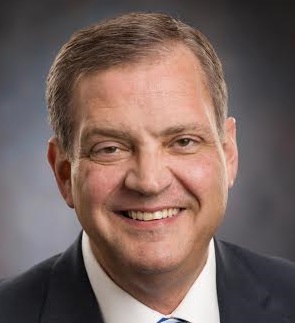By Bob Allen
A Southern Baptist seminary president says Christians should support the death penalty, but not necessarily how it is administered in the United States today.
Albert Mohler, president of Southern Baptist Theological Seminary, said in a CNN commentary May 1 that “the Bible clearly calls for capital punishment in the case of intentional murder.”
 “The death penalty was explicitly grounded in the fact that God made every individual human being in his own image, and thus an act of intentional murder is an assault upon human dignity and the very image of God,” Mohler said.
“The death penalty was explicitly grounded in the fact that God made every individual human being in his own image, and thus an act of intentional murder is an assault upon human dignity and the very image of God,” Mohler said.
“In the simplest form, the Bible condemns murder and calls for the death of the murderer,” he said. “The one who intentionally takes life by murder forfeits the right to his own life.”
At the same time, Mohler said Christians should be outraged at “economic and racial injustice in how the death penalty is applied.”
“There is very little chance that a wealthy white murderer will ever be executed,” Mohler said. “There is a far greater likelihood that a poor African-American murderer will face execution.
“Why? Because the rich can afford massively expensive legal defense teams that can exhaust the ability of the prosecution to get a death penalty sentence.”
Mohler said talk about abolishing capital punishment points to a problem with society at large, and less with the death penalty itself.
“American society is quickly conforming to a secular worldview, and the clear sense of right and wrong that was Christianity’s gift to Western civilization is being replaced with a much more ambiguous morality,” he said.
“We have lost the cultural ability to declare murder — even mass murder — to be deserving of the death penalty.”
Mohler said the “secularizing of human identity” has made murder a less heinous crime in the minds of many Americans.
“Most would not admit this lower moral evaluation of murder, but our legal system is evidence that this is certainly true,” he said.
Mohler said allowing death penalty cases to languish through years of seemingly endless appeals has undermined capital punishment as an effective deterrent. At the same time, legal activists are working overtime to bring legal execution to an end.
Mohler said this week’s botched lethal injection in Oklahoma will bring even more attention to the anti-death penalty cause.
“Opponents of the death penalty have, by their legal and political action, accomplished what might seem at first to be impossible,” Mohler said. “They now demand action to correct a situation that they largely created.”
“Their intention is to make the death penalty so horrifying in the public mind that support for executions would disappear,” Mohler said. “It is a testament to moral insanity that they have successfully diverted attention from a murderer’s heinous crimes and instead put the death penalty on trial.”
Mohler said Christians “should hope, pray and strive for a society in which the death penalty, rightly and rarely applied, would make moral sense.”
“This would be a society in which there is every protection for the rights of the accused, and every assurance that the social status of the murderer will not determine the sentence for the crime,” he said.
“Christians should work to ensure that there can be no reasonable doubt that the accused is indeed guilty of the crime,” he continued. “We must pray for a society in which the motive behind capital punishment is justice, and not merely revenge.”
In 2001 Mohler defended the death penalty in light of the execution of Oklahoma City bomber Timothy McVey on CNN’s “Larry King Live.”
The Southern Baptist Convention passed a resolution in 2000 supporting “fair and equitable use of capital punishment by civil magistrates as a legitimate form of punishment for those guilty of murder or treasonous acts that result in death.”
